When Owen Farrell dropped the mid-winter bombshell that he had agreed a summer move to Paris, Nick Kennedy knew he had to act fast, to launch an emergency search for someone to fill the glaring void.
For the Saracens head of recruitment and former England lock, this was an unexpected and ultimate challenge; how to find a replacement for the legend who was a captain for club and country, and a prolific, record-breaking Test centurion.
As if that wasn’t difficult enough, it had to happen at short notice, when most transfer deals had already been concluded around the Premiership and beyond.
Two-and-a-half months later, Saracens had their man; Fergus Burke. So, how did the London club identify a New Zealander little-known on these shores — who qualifies for England and Scotland — as the right candidate for the onerous task of stepping into Farrell’s boots? Kennedy had to present a list of viable options to his director of rugby, Mark McCall, and general manager, Phil Morrow. And he had to do so in a hurry.
‘We weren’t looking for a first-choice fly-half until Owen spoke to Mark and Phil about wanting to experience something different,’ he told Mail Sport. ‘They didn’t want to stand in his way, so as of January, suddenly we were in the market.
Saracens knew they had to act quickly when Owen Farrell announced his intention to leave
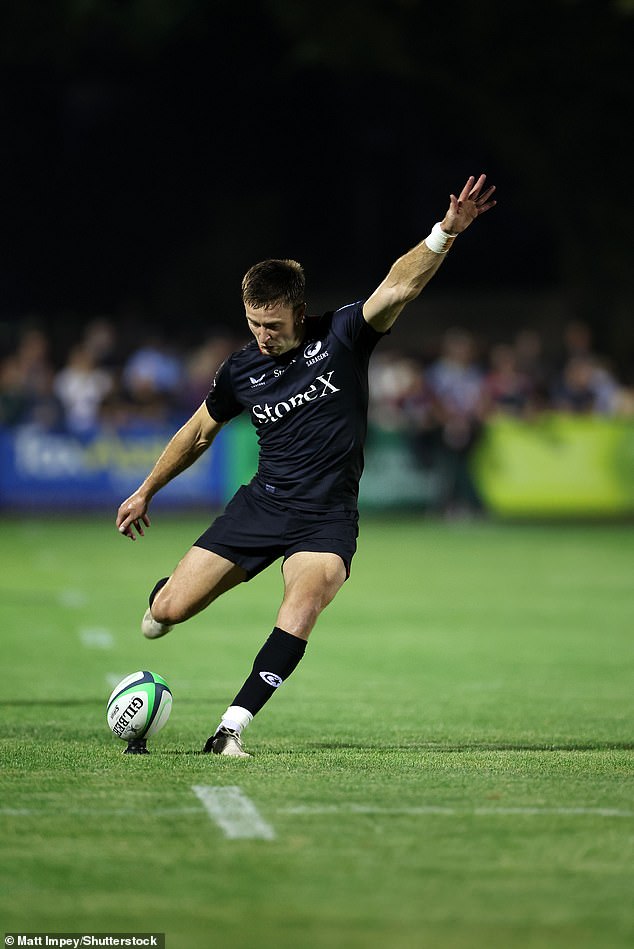
The club recruited the little-known New Zealander Fergus Burke for the unenviable role of replacing Farrell
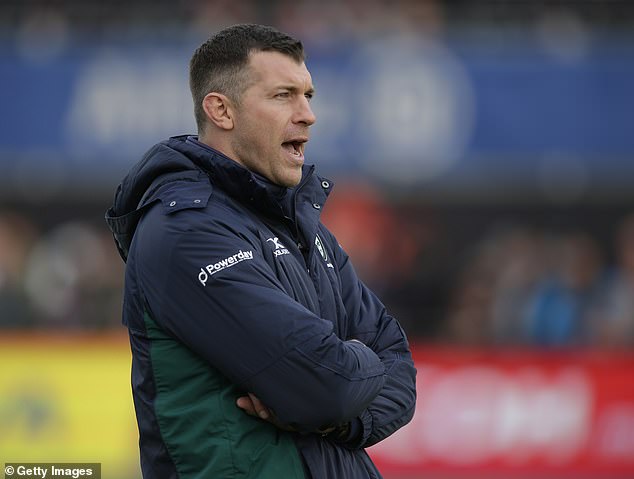
Saracens head of recruitment and former England lock Nick Kennedy had to present a list of viable options to his director of rugby
‘Now, I’ve got my list of players in every position who are available, but the list changes every week so I needed to quickly ring around all the agents, to check who was still available, to refresh the list.
‘I sent the current list to Mark and Phil, we got it down to a top 10, then started watching them and debating them. I watched as many highlight reels as possible, before moving into watching full games.
‘We talked about what we had in-house first and what fits the squad. Do we wait a year instead of now (to sign a new fly-half)? We were also looking at who is coming through the academy. It is about making the right decisions for the long-term health of the club.’
For the Saracens management team, the dilemma was whether to go hunting for a proven figure who could serve as the closest possible match to what Farrell offered, or seek someone they could mould into a long-term asset, in their image. They chose the latter, in the knowledge that nobody could tick every box as a Farrell clone anyway.
‘It was agreed early on that we weren’t looking at like-for-like,’ said Kennedy. ‘Owen is a unique player and his standing in the group was unique. It was always going to be someone different.
‘We were debating the attributes we were going to lose, what we needed to fill and what we could fill internally. For example, Owen was our captain, so did we have to sign another captain? No, we have lots of good leaders, so we didn’t need a leader.
‘We went through the specific attributes that the players on the top 10 list had, then went through the process of watching more and more, and finding out about the personalities by speaking to more people. So, we narrowed it down again and again.’
This is where the endless hours Kennedy spends watching rugby and talking to friends and contacts proved so useful. He speaks about having hundreds of thousands of players worldwide ‘in discovery’, which means trawling through action from the Premiership, United Rugby Championship, Top 14, Super Rugby and domestic rugby in New Zealand and South Africa.
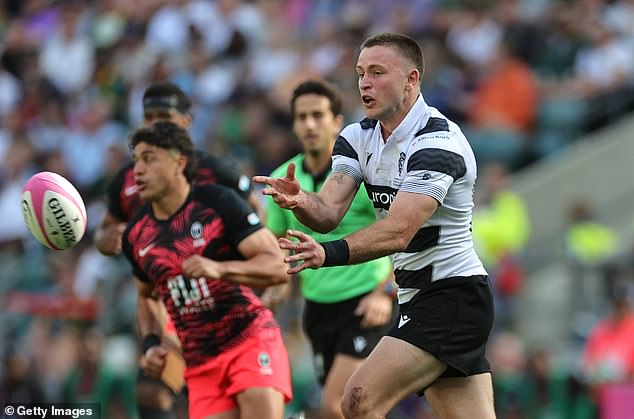
Saracens knew they couldn’t sign a like-for-like replacement and instead brought in someone who could be moulded
He will sit at his laptop analysing footage from international Under 20s games and Under 18 club matches. Last week, he was at London Scottish v Coventry in the Championship, then a school match the next day; Wellington v Harrow. After that, he caught up on how Saracens’ players from Fiji and Samoa had been doing in the Pacific Nations Cup. He has a ‘depth chart’ for every position and right now there are 110 locks on it, to be whittled down over the coming months.
Tips are encouraged via telephone contact, highlights reels or LinkedIn. All are followed up, just in case. This is not top-end football, where formal scouting networks exist; Kennedy has to rely on long-established links and friendships from his travels.
‘I’d love a scouting network with someone in New Zealand, someone in Australia and someone in South Africa,’ he said. ‘But, at the moment, it’s a very unofficial scouting network of guys I’ve played with or guys I’ve met over the years. I’ve got a lot of mates who can help me out and point me in the right direction.’
Human instincts are considered more crucial than artificial intelligence or mountains of data. ‘We look at stats,’ added Kennedy. ‘But the data would always take a back seat for us. It’s nice to know, but it’s about what we’re seeing, hearing and what we’re feeling when we watch it.’
Back to Burke. The references were all positive, so virtual talks were arranged. ‘We met Fergus on Zoom and he was an impressive character,’ said Kennedy. ‘It was the first time ever that they (the player) asked to meet us again! He wanted to find out more about what we were about, to see if it was a good fit for him and his partner, Millie.’
By this stage of the process, McCall was heavily involved. He had been impressed by the clips of Burke in action for the Crusaders, Canterbury and New Zealand Under 20s — and his positive view was reinforced by how he came across when they spoke.
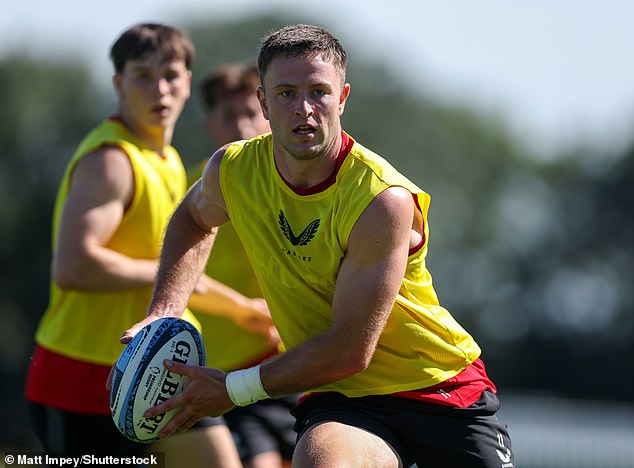
Human instincts are considered more crucial to Saracens than artificial intelligence or mountains of data and they were used extensively in the recruitment process for Burke
‘We saw a player who was measured, calm and unhurried on the field,’ said the Ulsterman. ‘We like that in a fly-half. When we spoke to him, it backed up everything we’d seen. He felt the right fit for us; bringing someone in who could grow in a team where there are a lot of players who are a similar age to him — 25, 26.’
Saracens concluded that Burke was ideal for their needs, but the Kiwi No 10 had to decide whether a move to the other side of the world was right for his career. ‘It was such a big decision for him,’ said McCall. ‘It was an onerous decision for him to leave and he’d never been in the UK before, so he was well within his rights to talk to us a second time.
‘We had a few more coaches and people he was going to work with on that call as well, just to give him a flavour of who he would be working with and what it would be like.’
Burke grew up in Gisborne in the north east of New Zealand. A skilful young player, he was regarded as an ‘exceptional footballer’ and his rugby prospects took off when he moved to St Paul’s Collegiate School in Hamilton. From there, he went into the Crusaders academy and developed as a fly-half who could also operate at full back.
While Saracens weren’t attempting to find a replica of Farrell, they chose someone of a similar build and willingness to embrace the physicality of the sport. ‘He’s a very skilful fly-half, he’s got pace but he’s also a brave defender, which we like at Saracens,’ said Kennedy.
McCall is encouraged that the new signing is a composed conductor and assertive presence, like his predecessor, but also someone who can attack the line and off-load.
Of course, the thorny issue he faces at Saracens is being judged against Farrell, but Burke is at ease about that pressure.
‘I’ve been through something similar this year, with Richie Mo’unga (All Blacks’ star fly-half) leaving,’ he said, about having another icon to emulate while he was still at the Crusaders. ‘I’m my own player, but I have ultimate respect for what Owen’s done.’
In New Zealand, they had big plans for Burke. He was regarded as a Test prospect. Speaking last year, Scott Robertson — who left Christchurch to take charge of the All Blacks — said: ‘Fergus has done a great job so far. He knows that the 10 is going to be handed to him and he’s had a good apprenticeship.’
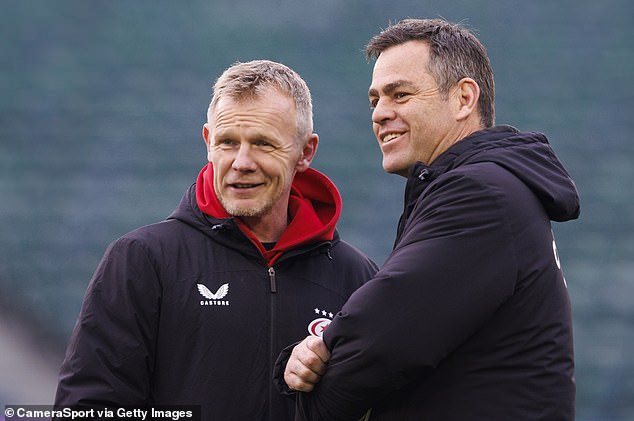
Mark McCall (left) is encouraged that the new signing is a composed conductor and assertive presence
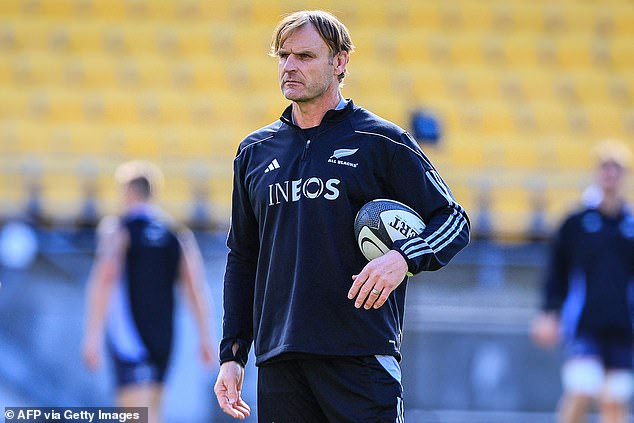
All Blacks head coach Scott Robertson spoke glowingly of Saracens star Burke last year
When it was announced that Burke would be leaving to join Saracens, Robertson’s successor at the Crusaders, Rob Penney, said: ‘It’s really disappointing, but he’s made a well-informed decision. He has got multiple opportunities, for all sorts of reasons, and he’s taken that option. We wish him well. Who knows, he might come back.’
The chief executive of the Crusaders, Colin Mansbridge, delivered a more barbed reaction, saying: ‘Obviously, we wanted him to stay, and that was the message he got loud and clear from us. He’s got three options in terms of representation; the All Blacks, England or Scotland, and it looks like he’s chosen the England-Scotland route.’
However, there is also residual good-will towards a young player who lost the best part of a season to injury and chose to try his luck abroad. All Blacks assistant coach Scott Hansen worked with Burke at the Crusaders and told Mail Sport: ‘We are really excited for Fergus and the opportunity he has with Saracens.
‘Fergus is a natural leader and a very good game tactician. It is a massive challenge to be seen to be replacing a club legend like Owen Farrell, but I know that Fergus will rise to the challenge.’
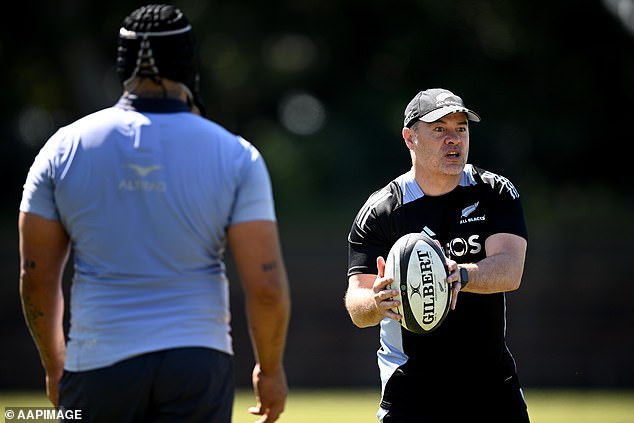
All Blacks assistant coach Scott Hansen worked with Burke at the Crusaders and told Mail Sport they are excited for Burke and the opportunity ahead with Saracens
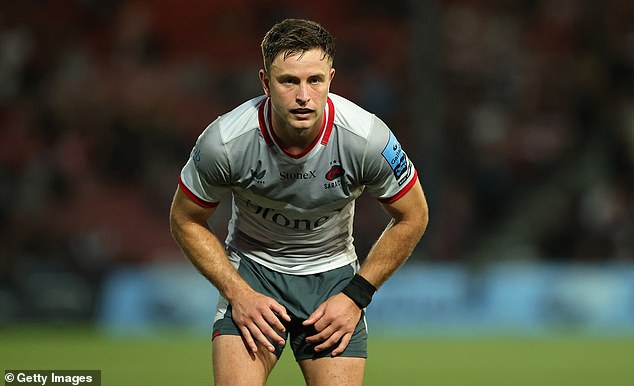
The 25-year-old — who qualifies for England and Scotland — made an assured debut last week as Saracens beat Gloucester
Last weekend, Burke made an assured debut as Saracens beat Gloucester. For McCall, it was an early glimpse of what they had seen in the Kiwi recruit. ‘He plays with clarity and calmness.’
On Saturday, a home debut awaits, against Sale. It is still early days, but Kennedy will be encouraged that all the analysis and the references have led to a satisfactory solution, in response to a recruitment emergency.
Copyright for syndicated content belongs to the linked Source link
The post How an unknown Kiwi kid became Owen Farrell’s Saracens successor after a global manhunt, a spreadsheet with 110 locks and turning down the All Black No10 shirt first appeared on Rugby 247.
—-
Author : rugby-247
Publish date : 2024-09-28 02:53:09
Copyright for syndicated content belongs to the linked Source.